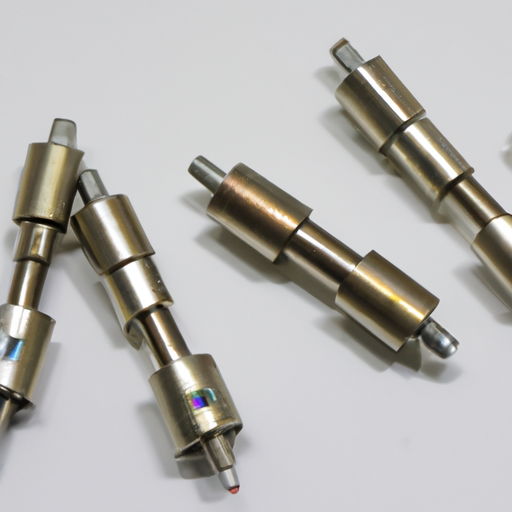

Title: A Comprehensive Guide to Attenuators: Types, Applications, and Benefits

I. What is an Attenuator? (200 words) An attenuator is an electronic device designed to reduce the amplitude or power of a signal without significantly distorting its waveform. It achieves this by introducing a controlled amount of loss into the signal path. Attenuators are commonly used in telecommunications, audio systems, RF and microwave engineering, and various other applications where signal control is crucial.
II. Types of Attenuators (400 words) 1. Fixed Attenuators: - Voltage Divider Attenuators - T-Pad Attenuators - Pi Attenuators - L-Pad Attenuators
2. Variable Attenuators: - Step Attenuators - Continuously Variable Attenuators - Digital Attenuators - Programmable Attenuators
III. Applications of Attenuators (400 words) 1. Telecommunications: - Fiber Optic Networks - Wireless Communication Systems - Satellite Communication Systems
2. Audio Systems: - Professional Audio Equipment - Home Theater Systems - Public Address Systems
3. RF and Microwave Engineering: - Antenna Systems - Radar Systems - Test and Measurement Equipment
4. Medical Imaging: - Magnetic Resonance Imaging (MRI) - Ultrasound Systems - X-ray Systems
5. Research and Development: - Signal Conditioning - Signal Generators - Laboratory Instrumentation
IV. Benefits of Attenuators (300 words) 1. Signal Control: - Prevents signal distortion and maintains signal integrity. - Allows precise adjustment of signal levels.
2. Noise Reduction: - Attenuators help reduce unwanted noise and interference in signal transmission.
3. Protection: - Attenuators protect sensitive equipment from high-power signals that could damage them.
4. Testing and Calibration: - Attenuators are crucial in testing and calibrating electronic devices and systems.
5. Versatility: - Attenuators can be used in a wide range of applications, making them highly versatile devices.
V. Conclusion (100 words) Attenuators play a vital role in signal control, noise reduction, and protection of sensitive equipment across various industries. This article has provided an in-depth understanding of attenuators, including their types, applications, and benefits. By utilizing attenuators effectively, professionals can ensure optimal signal quality, accurate measurements, and reliable performance in their respective fields.
Title: A Comprehensive Guide to Attenuators: Types, Applications, and Benefits

I. What is an Attenuator? (200 words) An attenuator is an electronic device designed to reduce the amplitude or power of a signal without significantly distorting its waveform. It achieves this by introducing a controlled amount of loss into the signal path. Attenuators are commonly used in telecommunications, audio systems, RF and microwave engineering, and various other applications where signal control is crucial.
II. Types of Attenuators (400 words) 1. Fixed Attenuators: - Voltage Divider Attenuators - T-Pad Attenuators - Pi Attenuators - L-Pad Attenuators
2. Variable Attenuators: - Step Attenuators - Continuously Variable Attenuators - Digital Attenuators - Programmable Attenuators
III. Applications of Attenuators (400 words) 1. Telecommunications: - Fiber Optic Networks - Wireless Communication Systems - Satellite Communication Systems
2. Audio Systems: - Professional Audio Equipment - Home Theater Systems - Public Address Systems
3. RF and Microwave Engineering: - Antenna Systems - Radar Systems - Test and Measurement Equipment
4. Medical Imaging: - Magnetic Resonance Imaging (MRI) - Ultrasound Systems - X-ray Systems
5. Research and Development: - Signal Conditioning - Signal Generators - Laboratory Instrumentation
IV. Benefits of Attenuators (300 words) 1. Signal Control: - Prevents signal distortion and maintains signal integrity. - Allows precise adjustment of signal levels.
2. Noise Reduction: - Attenuators help reduce unwanted noise and interference in signal transmission.
3. Protection: - Attenuators protect sensitive equipment from high-power signals that could damage them.
4. Testing and Calibration: - Attenuators are crucial in testing and calibrating electronic devices and systems.
5. Versatility: - Attenuators can be used in a wide range of applications, making them highly versatile devices.
V. Conclusion (100 words) Attenuators play a vital role in signal control, noise reduction, and protection of sensitive equipment across various industries. This article has provided an in-depth understanding of attenuators, including their types, applications, and benefits. By utilizing attenuators effectively, professionals can ensure optimal signal quality, accurate measurements, and reliable performance in their respective fields.